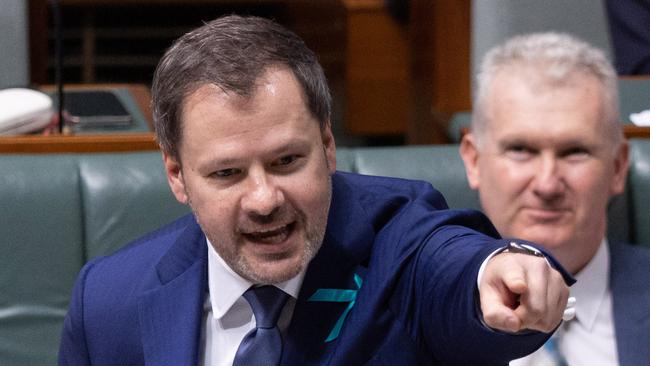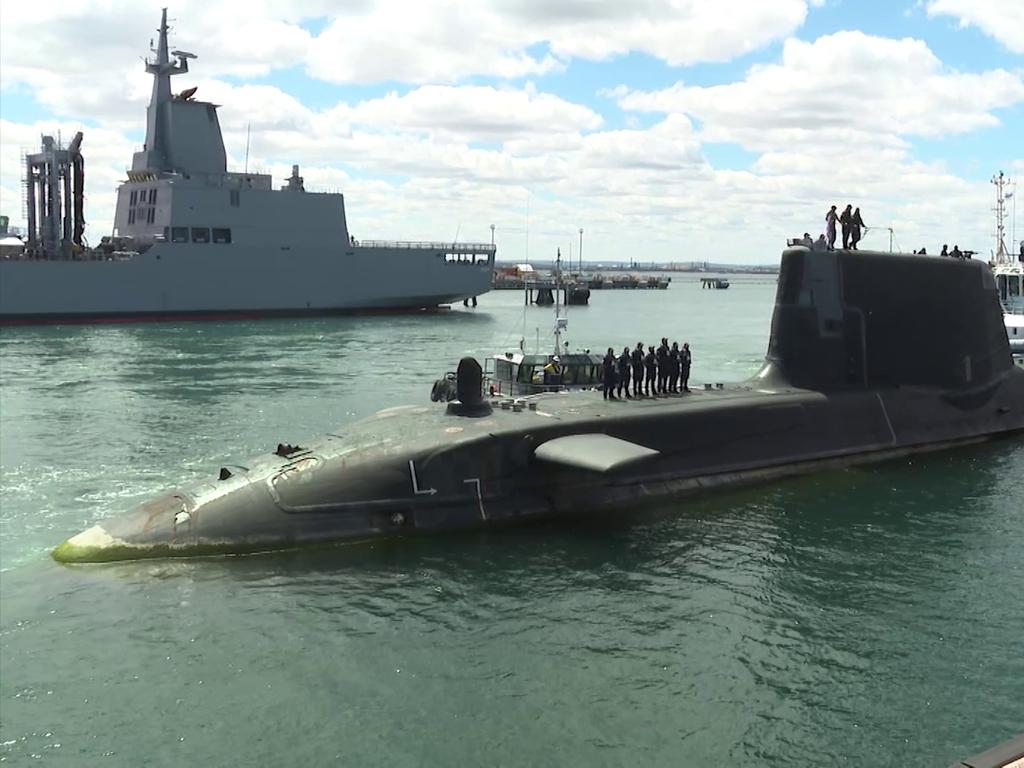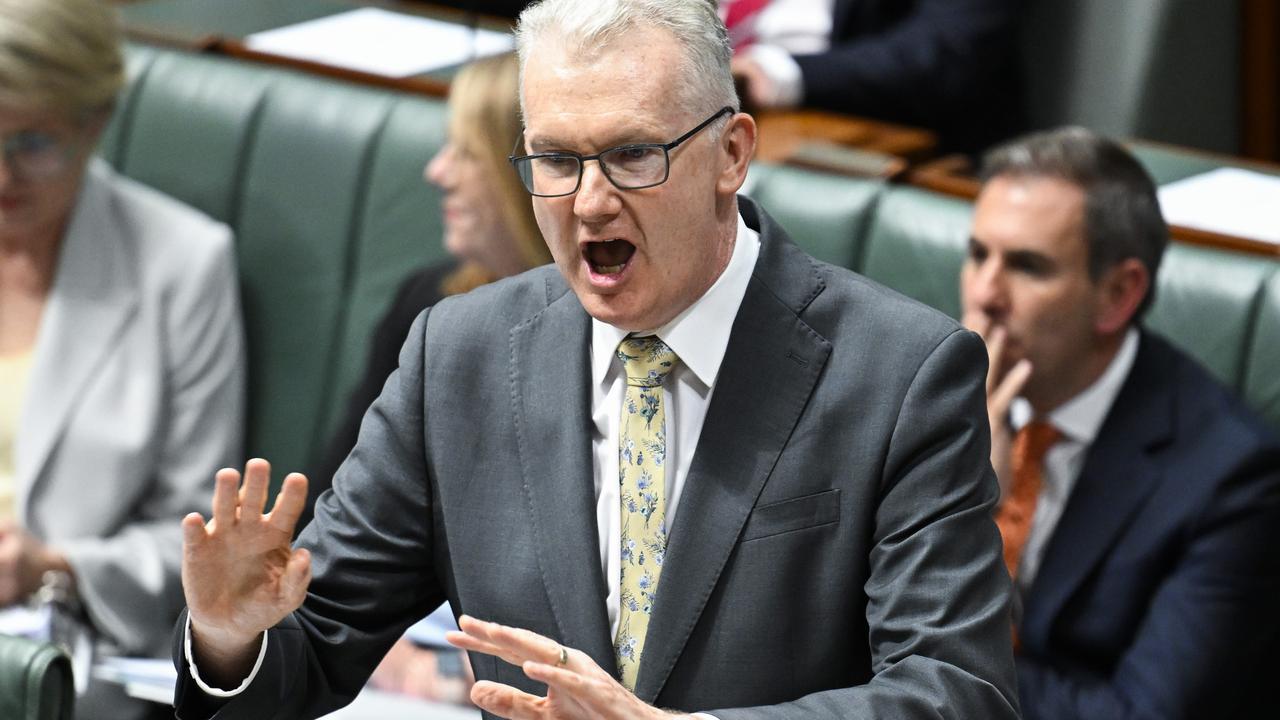Coalition ‘putting nation’s security at risk’: Industry Minister Ed Husic
Scuttling the $15bn National Reconstruction Fund will restrict investment in quantum and critical technologies pledged under the AUKUS agreement, Ed Husic warns.

Industry Minister Ed Husic has warned the Coalition that scuttling the $15bn National Reconstruction Fund will put Australia’s national security at risk and restrict investment in quantum and critical technologies pledged under the AUKUS agreement.
Ahead of a showdown in parliament over the future of Labor’s much-touted modern manufacturing fund, he said accelerating these technologies were “crucial to strengthening our economic and national security long-term”.
With the US, UK, India and Japan urging Australia to ramp up investment in quantum technology, artificial intelligence and robotics – key planks of the AUKUS security pact and Quadrilateral security dialogue – the Albanese government has reserved $2bn under the NRF for critical technologies and value-add minerals.
Mr Husic, who met senior US officials, including President Joe Biden’s Commerce Secretary Gina Raimondo, in Washington this month, is close to finalising the national quantum strategy that will guide strategic decisions and boost investment in computing, communications and sensing.
China’s dominance over quantum, AI and critical minerals has sparked an investment surge among western powers to offset Beijing’s strategic advantage and to establish new supply chains.
US security officials have flagged that China’s rapid advancement in quantum technologies will allow foreign powers to crack the most complex encryption codes and harvest data.
Mr Husic told The Australian that “critical technologies like quantum … aren’t just vital to economic growth”.

“Increasingly, our strategic partners expect us to come to the table with technological strength. At a time where we, as a government, are working hard to back the development of our quantum capabilities, the failure of the Coalition to back the NRF is extraordinary,” he said.
“Growing our quantum and critical technologies will be crucial to strengthening our economic and national security long term.
“For some weird reason, the Coalition thinks it’s OK to make it harder for the country to do that by opposing the NRF.”
Opposition Leader Peter Dutton last week ruled out supporting the NRF amid concerns it lacked transparency, enshrined inappropriate ministerial discretion, exposed taxpayers to risk and failed to provide investment certainty across key manufacturing priorities. The Coalition’s opposition has forced Mr Husic to negotiate with teal independents and the Greens, who are concerned about inflationary impacts of the NRF and want assurances the fund won’t be used to fund fossil fuels-linked manufacturing.
During his visit to Washington, Mr Husic discussed collaboration opportunities with the US on critical technologies in the areas of quantum and AI. In September, he appointed Chief Scientist Cathy Foley to lead a 15-person quantum strategy advisory committee that includes quantum pioneers Vikram Sharma and 2018 Australian of the Year Michelle Simmons.
The CSIRO has conservatively estimated that an Australian quantum technology industry could be worth $4bn in computing, communications and sensing and create 16,000 jobs by 2040.
Mr Husic said when it came to critical technologies, “we need to get below the surface – there is no one size fits all”.

“This is why completing a national quantum strategy has been one of my first priorities,” he said.
“I want to capture Australia’s unharnessed potential, and to do that we need to be clear-eyed about which skills and capabilities this country needs.
“By 2030, the Australian quantum sector has the potential to generate around 8700 jobs.”
Senior government sources said successive Coalition governments had failed to properly fund national security and critical technologies, with Australia falling to last in the OECD for manufacturing self-sufficiency. Vacancy rates in the tech sector under the Coalition were 60 per cent higher than the national average.
They warned that some of the deepest skills shortages and gaps in national capability were in areas linked to strategic security, including quantum, robotics and AI.
While Australian universities were among the first in the world to offer postgraduate study in quantum, many graduates had left the country to pursue their careers.
The Tech Council of Australia last year reported that Australian quantum companies attracted significant venture capital investment compared with international competitors, capturing a 3.6 per cent share of global venture capital for quantum between 2017 and 2021.
Deputy Opposition Leader Sussan Ley on Monday told parliament the NRF would do nothing for Australian manufacturers struggling with soaring energy prices, strained supply chains and labour shortages.
She also accused the government of setting up the NRF to benefit trade unions.
“The bill hasn’t passed but unions are already licking their lips at the prospect of the NRF, and have listed their demands: a third of the board positions, hand-picked by the Council of Trade Unions, positions which will determine who gets access to funding,” Ms Ley said.






To join the conversation, please log in. Don't have an account? Register
Join the conversation, you are commenting as Logout